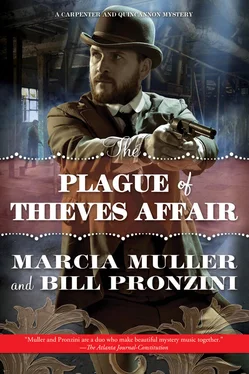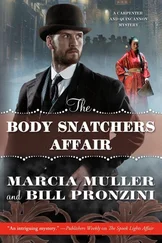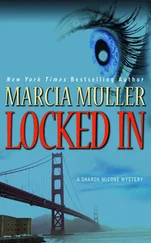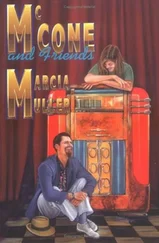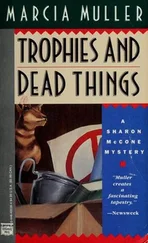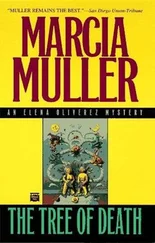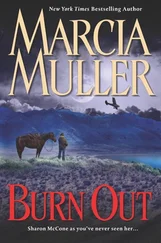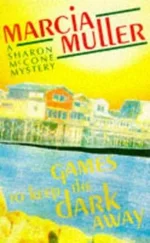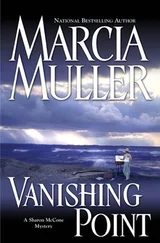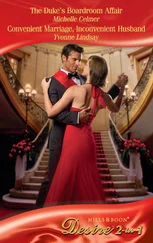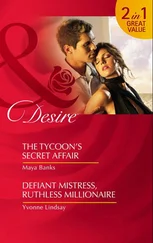If John had been present, he might well have whistled at the amount. Sabina managed not to blink.
“That is, of course,” Fairchild said, “if he can be found, is willing to return to Chicago, and once there, is not judged incompetent by a court-appointed alienist.”
“And if he were? Would you stand to inherit in his stead?”
The young dandy’s smile quirked at the corners. “You mustn’t think I have ulterior motives, Mrs. Carpenter.”
“I have no such thoughts,” Sabina fibbed. “I was merely asking a question.”
“The answer to which is yes.”
“Do you believe he’s incompetent?”
“Well, a man who has assumed the identity of a rather famous and deceased individual can hardly be considered sane, can he?” Nose twitch. “Charles always was a bit queer. Quite intelligent, well read, well spoken, but nonetheless lacking in mental stability.”
“How did he become obsessed with Sherlock Holmes? Do you know?”
“Specifically, no. My uncle sent him to England when he was in his early twenties, to be educated at Oxford. Our family has British forebears, you see. Charles the Second’s father was born in England.”
“Did he complete his studies there?”
“Yes, with honors. And developed into a confirmed Anglophile in the process. He came home to Chicago for a time, at my uncle’s urging, but then skipped off again to England.” Twitch. “A generous monthly stipend, overly generous to my way of thinking, allowed him to live quite well in London.”
“Where he was exposed to the genuine Holmes’s exploits and grew to admire him to an irrational degree.”
“Yes. He also bears a physical resemblance to the genuine article, I understand. He wrote of this in one of his early letters, claiming the resemblance to be so uncanny that they might have been twins.”
“He made no secret of his obsession, then?”
“On the contrary. He reveled in it. Though at first it seemed more a case of uncontrolled hero worship than actual impersonation.”
“When did he come to believe that he was Holmes? Was it when the detective died in Switzerland?”
“That may well have been what tipped him over. In his last letter, more than two years ago, he wrote that rumors of ‘his’ alleged death were false and ‘he’ was very much alive and intended to continue ‘his’ inquiries, as he called them, elsewhere. He signed it ‘S. Holmes, Esquire.’”
“What did his father think of this?”
“He was upset, of course. He sought to bring Charles back to Chicago for treatment by an alienist, but his letters and cables went unanswered. The old gentleman’s health was too poor to permit him to travel to England. Through his attorneys he hired investigators in London, but they found no trace of Charles there or anywhere else. He simply disappeared.”
“Did he indicate in his last letter that he might travel to San Francisco?”
“No,” Fairchild said. “It was only after my uncle’s death that we — the attorneys for the estate and I, that is — discovered that Charles had come here and was posing as Holmes.”
“How did you find out?”
“By happenstance. My uncle’s law firm is one of Chicago’s largest and they have had dealings with a San Francisco firm — Stennett, Tyler, and Dubois. Perhaps you’ve heard of them?”
Sabina nodded. They were respected corporate attorneys.
“Harold Stennett was in Chicago on a business matter,” Fairchild said. “He met with my uncle’s attorney, Leland Hazelton, and chanced to mention that a man claiming to be Holmes had been involved in a rather sensational murder case with a pair of genuine private investigators. Mr. Stennett provided your and your partner’s names. He also offered to contact your firm upon his return, but Mr. Hazelton and I decided it would be best if I undertook the task myself. In the event Charles is found, I stand a better chance than anyone else of convincing him to return to Chicago. As a member of the family and because we have always had a reasonably cordial relationship.”
“I see. Is there anything else I should know?”
“I don’t believe so. You’ll conduct a search, then? Or will you need to consult with your partner before committing?”
“That won’t be necessary,” Sabina said, having no intention of doing so. She had been taking notes; she laid down her fountain pen, brushed a stray wisp of her seal-black hair off her forehead, and sat back. “You may rest assured every effort will be made to locate your cousin wherever he may be. There are no guarantees, of course.”
“Will you be able to begin immediately?”
“I don’t see why not.”
“And how will you go about it?”
“Our methods are private by necessity, as I’m sure you can understand. But you have my assurance that you will be immediately notified of any pertinent developments.”
“That is satisfactory. What are your fees?”
She named a retainer figure, an amount somewhat less than John surely would have asked.
“Also satisfactory. Shall I write you a check now?”
“If you like.” But she wouldn’t deposit it in the agency account until she checked to make absolutely sure Roland W. Fairchild was who and what he claimed to be.
While he was writing the check with a gold fountain pen of his own, Sabina asked, “Where can you be reached, Mr. Fairchild?”
“We have a suite at the Baldwin Hotel.”
“We?”
“My wife Octavia and I. Like me, she has always longed to visit the ‘Paris of America’ and all its charming attractions.”
Fairchild’s smile turned wistful as he spoke, as if he secretly wished he’d come alone to the “Paris of America” — a city as famous for its sinful attractions as for its charming ones. A roving-eyed gay blade like Roland Fairchild, if he were here untethered and unsupervised, would have had himself a grand time in the flesh palaces and gambling halls of the Barbary Coast and Uptown Tenderloin. His wife must be a forceful woman, and a perceptive one, to have convinced him to bring her with him.
Sabina said, keeping her voice free of irony, “I hope you’ll both enjoy the many available pleasures during your stay.”
“I’m sure we will.” Fairchild stood. “And I hope I shall hear from you soon with positive news.”
“Soon in any case, Mr. Fairchild. Good day.”
A reply in kind, followed by another small raffish smile, and he was gone. The strong scent of his bay rum remained, however; Sabina opened the window facing on Market Street to let in breaths of cold fresh air.
Had she been a little too hasty in accepting his proposition and his check? Not because of her dislike of the dandified Mr. Roland Fairchild, and not because she doubted her ability to locate his delusional cousin if such were possible; the undertaking was worthwhile if only to give Charles Percival Fairchild III the option of returning to Chicago to attempt to claim his inheritance. No, the concern lay in the prospect of dealing with him again in his vainglorious and vaguely sinister Sherlock Holmes role.
Their last meeting had been an amicable one, but his secretive involvement with Carson Montgomery’s past and present troubles had left her with further doubts about his sanity. There was no question that he was shrewd and his deductive powers considerable — he had proved that on more than one occasion — but last October he’d given her reason to suspect that his methods were not quite as cerebral and nonviolent as those of the genuine Mr. Holmes. She wasn’t afraid of him, but her uncertainty as to the exact nature of his instability was unsettling.
John had similar feelings, though for different reasons. Sabina hadn’t told him about the unpleasant business with Carson; it would have served no good purpose. His aversion to “Holmes” was motivated by enmity and jealousy, the poseur having dealt a blow to John’s self-esteem during their investigation of the Bughouse Affair. As far as he knew, the thorn in his side had been plucked out for good the previous summer, after the close of the Spook Lights Affair. Should she tell him of the crackbrain’s true identity and what the present assignment entailed? He was entitled to know, of course, but it would probably make him furious. No, not probably — definitely. The best course, then, was to proceed privately with the search for Charles Percival Fairchild III; and however it turned out, to give John an ex post facto explanation. His feathers wouldn’t be quite so ruffled then, especially if her investigation resulted in Charles the Third’s departure for a city two thousand miles from San Francisco.
Читать дальше
